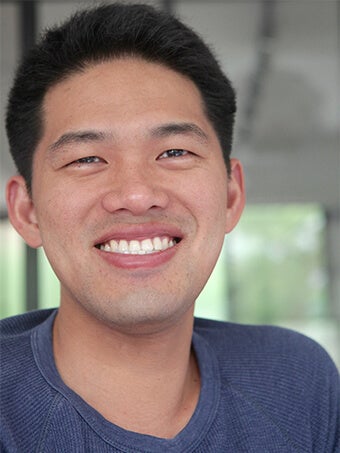

Associate Professor Ne-te Duane Loh
Faculty & Department
Joint Appointments
Associate Professor, Biological Sciences, Science
Associate Professor, Integrative Sciences and Engineering
Jt Appt - Associate Professor, Biological Sciences, Science
Principal Investigator, Institute for Digital Molecular Analytics and Science (IDMxS)
Education
Doctor of Philosophy, Cornell University, New York, USA, United States
Not Available, Harvey Mudd College, USA, United States
Bio
Duane Loh is an Associate Professor in the Departments of Physics and Biological Sciences at the National University of Singapore (NUS) and a Principal Investigator at the NUS Centre for Bio-imaging Sciences. His research focuses on developing computational lenses, innovative tools that fuse machine learning with scientific and instrument priors to decode complex and chaotic dynamics at the nanometer scale.
Duane’s group pioneered these computational lenses for single-particle diffractive imaging using X-ray free-electron lasers, where they applied unsupervised learning to discover transient intermediate states and spontaneous order formation in highly dynamic systems. They extended these methods to electron-based imaging, overcoming challenges too complex for traditional hardware-based microscopy alone.
By combining advanced microscopy with statistical learning, Duane is leading efforts to explore nucleation processes, nanocrystal growth, and self-organization in both physical and biological systems. Building on their expertise in understanding complexity in physical systems,
Duane’s group is now applying these data-driven approaches to understanding the complex many-body dynamics of biological cells and the spread of vector-borne diseases. This work continues to bridge the gap between massive, complex datasets and foundational scientific understanding, pushing the boundaries of discovery in both physical and biological sciences.
Contact Information
Part of our research develop computational lenses, innovative tools that fuse machine learning with scientific and instrument priors to decode complex and chaotic dynamics at the nanometer scale.
We have pioneered these computational lenses for single-particle diffractive imaging using X-ray free-electron lasers, where they applied unsupervised learning to discover transient intermediate states and spontaneous order formation in highly dynamic systems. They extended these methods to electron-based imaging, overcoming challenges too complex for traditional hardware-based microscopy alone.
By combining advanced microscopy with statistical learning, Duane is leading efforts to explore nucleation processes, nanocrystal growth, and self-organization in both physical and biological systems. Building on their expertise in understanding complexity in physical systems,
We apply these data-driven approaches to understanding the complex many-body dynamics of biological cells and the spread of vector-borne diseases. This work continues to bridge the gap between massive, complex datasets and foundational scientific understanding, pushing the boundaries of discovery in both physical and biological sciences.
My Mentoring Style
How would you describe your mentoring style in terms of freedom given to your students?

Selecting Research Topics?
How do you guide your PhD students in selecting research topics?

Setbacks / Challenges
How do you handle setbacks or challenges faced by your PhD students?

Feedback
How do you give feedback on your students’ thesis drafts and progress?

Consultation Frequency
How often do you typically meet your PhD students one-on-one for consultation?

Research Group Meetings
How often do you typically hold lab meetings where your PhD students present their research work to the class?


